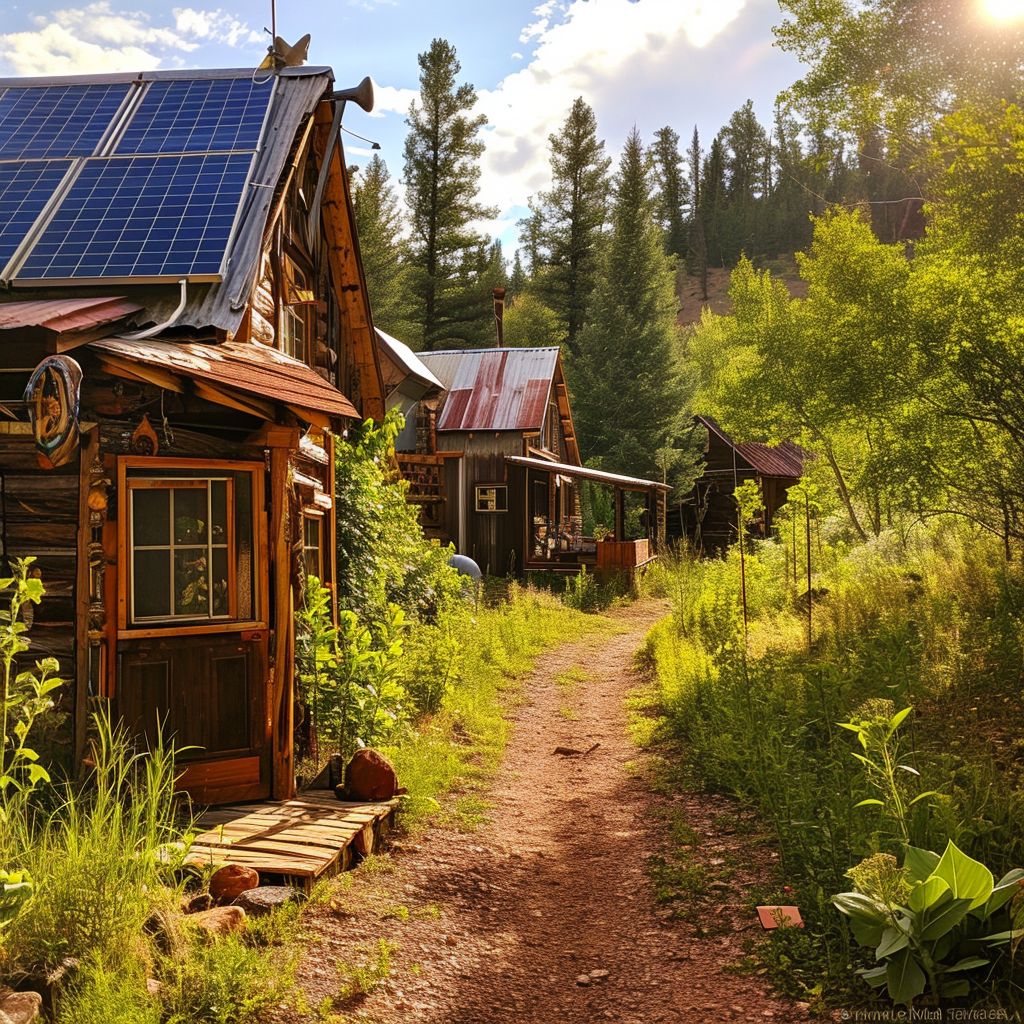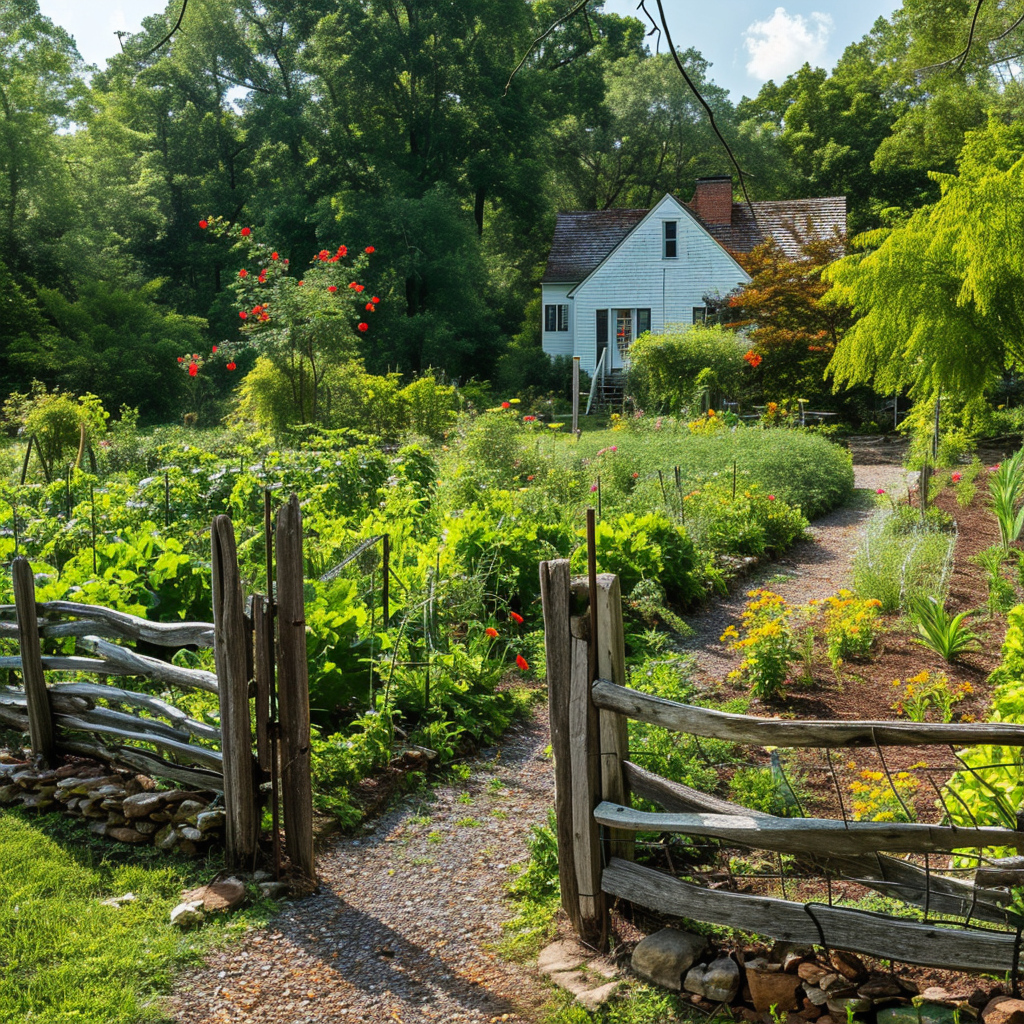Have you ever thought about why is living off the grid good? You know, living in a remote area, away from the hustle and bustle of modern life, relying on renewable energy sources and growing your own food? It may sound like a dream, but it’s actually a lifestyle choice that more and more people are embracing. In this article, we’ll delve into the benefits of living off the grid and how it can improve your overall well-being.
Living off the grid offers a multitude of advantages. First and foremost, it allows you to become more self-sufficient. By generating your own electricity through solar panels or wind turbines, you free yourself from the reliance on traditional energy sources, reducing your carbon footprint in the process. Additionally, growing your own food organically enables you to have greater control over what you consume, ensuring a healthier diet and reducing your reliance on industrial agriculture.
But living off the grid goes beyond just self-sufficiency. It also allows you to connect with nature in a much deeper way. When you’re surrounded by the tranquility of nature, you can experience a sense of peace and serenity that is often hard to find in our modern, urbanized societies. The simple act of waking up to the sound of birds chirping and breathing in fresh, unpolluted air can have a profound impact on your mental and physical well-being.
In this article, we’ll explore these benefits in more detail, providing you with practical tips and advice on how to start your off-grid journey. Whether you’re considering a complete lifestyle change or simply want to incorporate some off-grid practices into your current life, you’ll find valuable insights that will help you make informed decisions. So, stay tuned and get ready to discover the many advantages of living off the grid. Living off the grid, or in other words, living independently without any reliance on public utilities, has gained popularity in recent years. Many people are choosing to embrace this unconventional lifestyle for various reasons. From environmental sustainability to enhanced mental well-being, there are numerous benefits to living off the grid. In this article, we will explore the top ten advantages that come with embracing this lifestyle.
Environmental Sustainability
Living off the grid significantly reduces your carbon footprint. By relying on alternative energy sources such as solar panels or wind turbines, you can significantly minimize your impact on the environment. Additionally, by preserving natural resources and minimizing pollution, you play your part in conserving the planet for future generations.
Reduced Dependence on Utilities
One of the primary benefits of living off the grid is the reduced dependence on public utilities. Being energy independent allows you to generate and manage your own power, eliminating the need for traditional electricity sources. Similarly, by implementing rainwater harvesting techniques and utilizing natural water sources, you can become water independent. Furthermore, adopting efficient waste management practices ensures that you can handle your waste without relying on external services.
Cost Savings
Living off the grid can lead to significant cost savings in the long run. By generating your own energy, you can reduce or eliminate your electricity bills entirely. Similarly, by using alternative water sources, you can reduce your water bills. Additionally, the decreased reliance on maintenance services, such as plumbing or electricity repairs, can also lead to decreased expenses. Ultimately, this financial independence allows you to have more control over your budget and allocate your resources towards other priorities.

Self-sufficiency and Survival Skills
Living off the grid forces you to become self-sufficient and develop essential survival skills. From learning to provide for your basic needs, such as growing your own food and sourcing water, to acquiring practical skills like carpentry or plumbing, this lifestyle encourages independence. Moreover, living off the grid helps build resilience and adaptability, as you become more in tune with the resources available to you and learn how to make the most of them.
Enhanced Mental Well-being
Living off the grid has been linked to improved mental well-being. By reducing exposure to the stresses and anxieties of modern life, such as financial pressures or the constant pressure to keep up with societal expectations, individuals often experience a sense of liberation. Furthermore, the increased connection with nature that comes with living off the grid has a positive impact on mental health, promoting relaxation, mindfulness, and a stronger sense of peace and tranquility.
Closer Connection with Nature
Living off the grid allows you to live in harmony with nature. By embracing a simpler lifestyle, you become more aware of and appreciative of the natural beauty that surrounds you. Whether it’s the stunning landscapes, the sounds of wildlife, or the opportunity to engage in outdoor activities, living off the grid provides an opportunity to immerse yourself in nature and experience its wonders firsthand.
Freedom from Social Conformity
Living off the grid allows individuals to break free from the pressures of conforming to a materialistic culture. By reducing reliance on societal norms and expectations, you can embrace an alternative and unconventional lifestyle that suits your preferences and values. Whether it’s choosing to live in a tiny house or adopting a minimalist approach to possessions, living off the grid enables you to veer away from the mainstream and embrace a lifestyle that aligns with your unique vision.
Privacy and Security
Living off the grid offers a higher level of privacy and security. By maintaining personal privacy, you can enjoy a quieter and more peaceful living environment, free from the prying eyes of neighbors. Additionally, living off the grid reduces the vulnerability to cyber threats, as you have minimal online presence and dependence on digital systems. Furthermore, you can protect your physical assets by implementing security measures tailored to your specific needs, giving you peace of mind.

Independent Lifestyle Choice
Living off the grid is ultimately a lifestyle choice that promotes independence and personal freedom. By living independently from public utilities and societal norms, you have the freedom to shape your own life and make choices that are aligned with your values. This pursuit of individual autonomy and self-reliance can lead to a sense of fulfillment and satisfaction.
Conclusion
Living off the grid offers a wide array of benefits that range from environmental sustainability to enhanced mental well-being and personal freedom. By reducing your carbon footprint, becoming self-sufficient, and enjoying cost savings, you can create a lifestyle that is both fulfilling and economically viable. Moreover, living off the grid enables you to establish a closer connection with nature, break free from social conformity, and enjoy increased privacy and security. Ultimately, the choice to live off the grid is a personal one that offers a range of advantages for those seeking a more independent and sustainable way of life.




